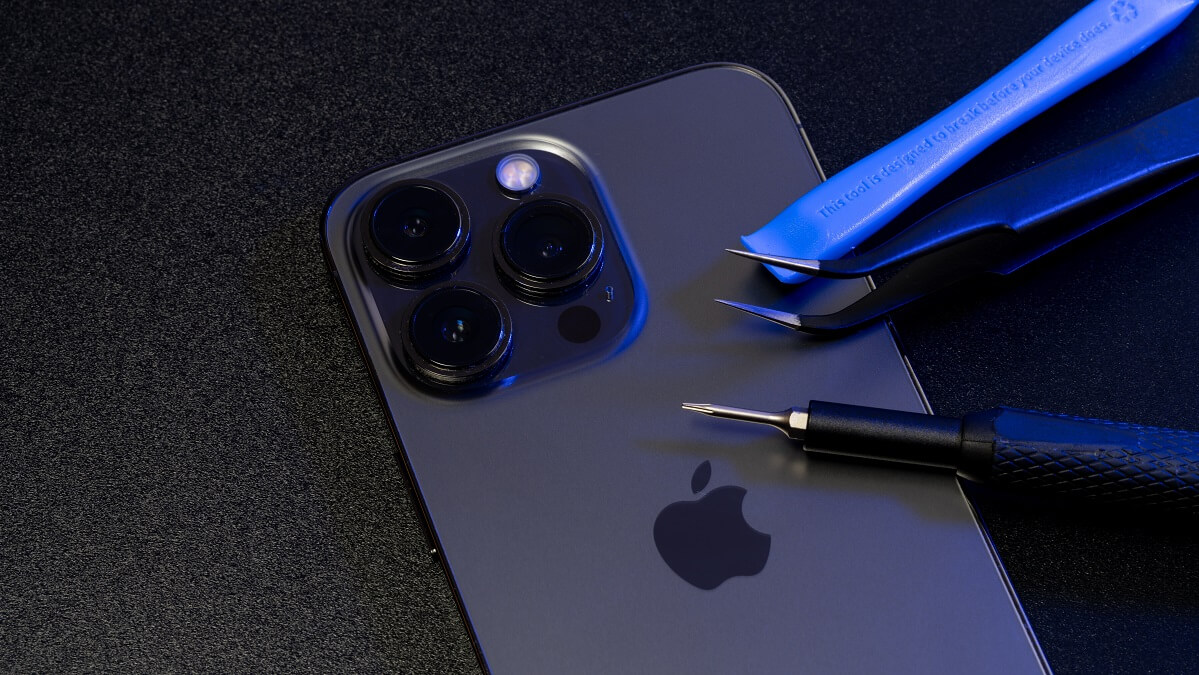Tech giant Apple has officially dropped its opposition to so-called ‘right-to-repair’ laws in the US, paving the way for iPhone and iPad users worldwide to be able to fix their own devices.
Apple has made an abrupt about-face on the issue recently, and now claims to support an individuals right to repair devices they have legally purchased despite many years pushing the opposite.
Leanne Wiseman, associate professor at Griffiths University and chair of the Australian Repair Network, told The New Daily Apple devices are intentionally designed to be difficult to take apart.
“They are being designed in a way where it’s not easy to take apart, we know that batteries aren’t simple to remove, the screws are often unique and need an Apple screwdriver to remove, for example,” she said.
“Apple is realising that the regulators are recognising that this raises serious kinds of economic issues for people, but also around being able to have third parties access and repair these products.”
Apple’s traditional opposition to repair laws has been rooted in a desire to keep new device sales high, or at least to be able to charge customers whatever price they like for repairs.
It’s long been a problem in the automotive industry, where some vehicle manufacturers have been found to lock diagnostic and maintenance features behind proprietary software that can only be accessed by the manufacturer themselves.
Laws addressing the situation in the automotive world were introduced in Australia in 2021, under the Motor Vehicle Information Scheme (MVIS), which decreed that manufacturers must share this type of information with independent repairers.
A government inquiry into right-to-repair laws for technology was completed the same year, recommending changes to the laws, but as yet none of these changes have come into effect.
It’s hoped the change of heart from one of the world’s largest tech companies may prove influential in the space.
Constantly being forced to buy new electronic devices is not only extremely costly, but has a measurable environmental effect as well.
Pip Kiernan, chair of Clean Up Australia, has formed the Australian Repair Network (ARN), an advocacy group that will push for right-to-repair laws with “all levels of government, policy makers, industries, repairers and the community”.
The group will also liaise with universities and resource institutions on priority themes related to repair, durability and product life extension.
“If we are to get serious about reducing our waste to landfill and truly creating a circular economy, we must shift the dial on repair,” she says.
“At Clean Up Australia, we know it is critically important to highlight the value of repair and promote efforts to fix what we own.”
When was the last time you had to replace an electronic device? Should you be allowed to get it repaired yourself? Let us know what you think in the comments section below.
Also read: Guide to buying antivirus software


The point that Ms Wiseman makes about Apple devices being difficult to dismantle is a false call. Yes, Apple are big users of the tri and pentalobe screws, but appropriate tools for these are generally available and the access to an iPhone is no more difficult than any non-Apple device.
However, as every repair organisation can tell you, the greatest problem to repair a non-functioning device is the hands that have gone there before. Hands that have not known what they are doing but will blunder in anyway. When this fails, often the original fault is from user abuse of the device, they will present to an authorised service agent and demand a Warranty claim.
Non-OEM batteries for example are easily obtained, but this does not mean that they have come from a manufacturer with as strict a quality control as the original one, or may come from the same factory, but were already rejected as not meeting the standards demanded.
You may replace such a component with one costing as little as half the OEM, but it may only last half the operational life of the original.
As someone who has the tools and is trained in the repair, I dispute Apple or any other manufacturer makes it difficult for people with skills. The repair process makes it hard for the untrained novice who thinks because they can fix a toaster, they can fix other technology, but this just isn’t so. Sadly, many of those demanding a right to fix don’t invest in the tools or the training. They make problems worse for owners in the end. I wonder how qualified Ms Wiseman is to make the call about Apple products being difficult to dismantle. Maybe if you don’t have the tools, but surely that is true of anything.